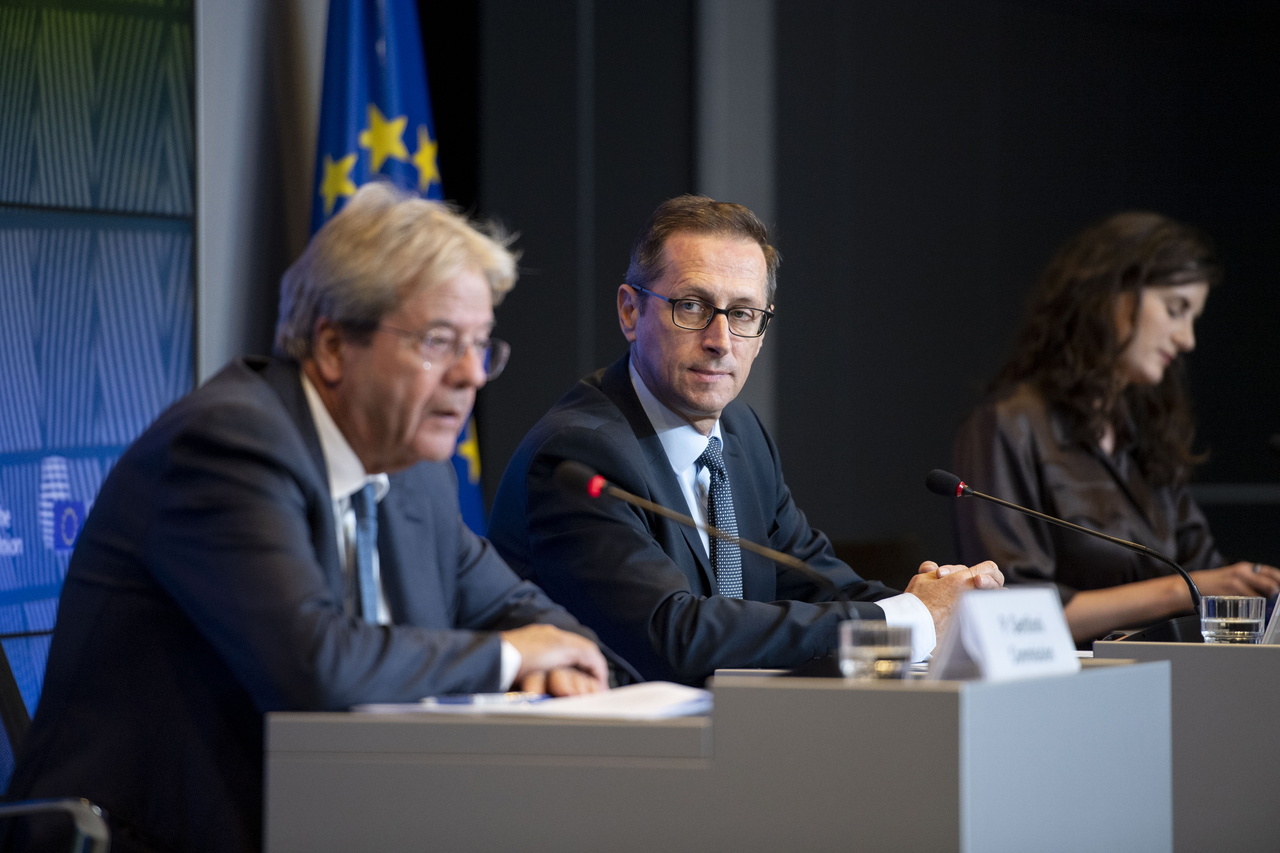Change language:
Under Hungary’s leadership, EU reaches agreement to provide Ukraine with EUR 35 billion loan

On Wednesday, the Council of the European Union agreed on a financial aid package for Ukraine, which includes a macro-financial assistance loan of up to EUR 35 billion, as announced by the body, currently under Hungary’s presidency.
Ukraine loan approved
According to the Council’s statement, the package also includes a cooperative mechanism to help Ukraine repay loans of up to EUR 45 billion, provided by the EU and the G7 partners, which include several EU member states along with the United States, Japan, and Canada, Telex reports. The EU and its partners are set to offer Ukraine around USD 50 billion (or EUR 45 billion) in loans, with the EU covering EUR 35 billion of that amount.
Part of the repayment is expected to come from the proceeds of frozen Russian central bank assets, essentially using Russian funds to assist Ukraine.
Hungary could not veto this time: but did it want to in the first place?

The decision required only a qualified majority, meaning Hungary’s government could not veto it. Despite this, some outlets like Euronews and Reuters reported a potential Hungarian veto, which Hungarian Finance Minister Mihály Varga strongly denied, calling the reports “fake news”. He clarified, “They falsely reported that Hungary blocked the EU loan meant to support Ukraine. The truth is that no such block took place, and the relevant legislation is expected to be passed after discussions between Coreper and the European Parliament, likely in October.”
Based on Euractiv’s information, the decision was made by Coreper, the Permanent Representatives Committee, which consists of Brussels-based diplomats from EU member states. The Council’s statement emphasised that in order to swiftly provide macro-financial assistance to Ukraine, the member states agreed that if the European Parliament adopts the Commission’s proposal without amendments, the Council would also approve the text without changes.
However, extending the EU sanctions that have frozen Russian assets requires unanimous approval every year. The U.S. government is concerned that a member state might block the renewal, which is why it proposed a three-year extension instead of the usual one-year period. According to Euronews, Varga suggested that this decision should be made after the U.S. elections.
Read also:








EU is stealing money from EU taxpayers to pay for 100-year war.
At this point in time no one knows who is going to be the winner of the Russia vs Ukraine war, but we can be certain that regardless who wins, Hungary will be a looser.
The E.U. has plenty of money and determination to protect Ukraine’s borders from Russian invaders…
…while practically erasing its own to even more dangerous third-world ones.
‘Leadership’? From speeches made by Magyar and von Leyen in the EP, with PM too?
Think the ‘dam has burst’ and no more or zero tolerance of external players ie. Anglo RWNJs & Russia, using complicit Hungary to try split the EU.
Locally short term opportunism by all, leads to long term negative outcomes eg. emigration of Hungarians en masse…..
For context and “leadership” – which is a bit of a misnomer, but we will get to that:
“The presidency makes sure four things happen within the Council:
the EU’s agenda maintained
sound law-making
cooperation among member states
cooperation/coordination among the other EU-instititions
The role has been likened to someone hosting a dinner, making sure their guests all gather in harmony – able to express differences during the meal but leaving on good terms and with a common purpose.
To guarantee effectiveness, the presidency acts as an ‘honest broker’, rising above the holder’s own national interest. The presidency plays an essential part, along with the other institutions, since only by working together can the EU deliver.”
https://www.consilium.europa.eu/en/presidency-council-eu/
@michaelsteiner – we do not (yet) border Russia directly. Why do you think the Baltic states, Poland, and neutral-for-75-years – but no more Sweden and Finland are so concerned? Asking for a friend.